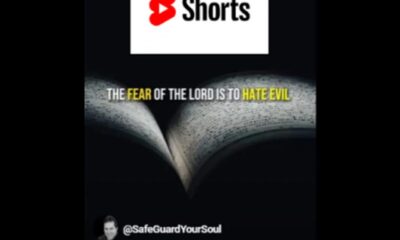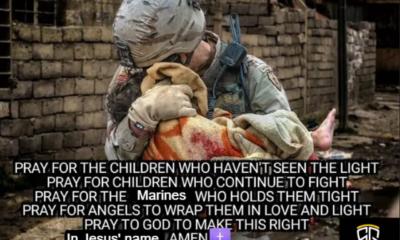Luke 15 contains 3 amazing parables illustrating the restorative love of our Father in Heaven who sent His only begotten Son to procure us back to Himself. That’s the Home where we belong! Read the parables of the sheep, silver, and son in Luke 15.
By Brother Jason
We have all heard the story of the Prodigal son found in Luke 15. It’s an amazing account of mercy, forgiveness and love of his father. We use this story a lot in ministry to reach prodigals and to restore hope to the broken.
It serves as a way to show people that no matter how far they have gone, if they humble themselves and seek forgiveness, God will welcome them home.
Many times, we stop there and overlook the story of the eldest brother, which serves as a warning against self-righteousness rooted in pride. He is understandably offended by the pain the younger brother’s selfish and irresponsible behavior inflicted on their father. But he is consumed by anger when he sees his sibling being welcomed with love instead of being condemned.
The older brother’s pride highlights the disparity between his own virtue and his brother’s vices. Yet this same pride blinds him to the hardness of his own heart. The love and forgiveness he withholds from his brother causes his father as much pain as did his brother’s reckless living.
We have all seen this transpire in one way or another. People make bad decisions, maybe run from God, live in sin for a season and wake up and decide to turn their hearts back to God. The people who have never fallen away, never backslid or at least never been caught are unwilling to forgive them, associate with them, or to welcome them back into the congregation.
Christ never shunned the sinner. He dined with them. He embraced them. He forgave them. He loved them. He expects the same of us. When he taught his disciples to pray, he instructed them to forgive those who sin against them just as they ask the Father to forgive their own sins. But forgiveness is hard. It requires both grace and humility.
Jesus shows us what happens to those who refuse to forgive. The image of a banquet is often used as a metaphor for Heaven. When we see the older brother, he is outside the banquet. The father reaches out to him and pleads for him to enter and join the celebration. He refuses. He is excluded from the banquet, not by the father, but by his own unwillingness to find joy in his brother’s redemption.
While it may be more comfortable to see ourselves as the older brother, the paragons of virtue who are able to discern the sins of those around them, it is important to remember that the older brother was virtuous only in the eyes of the world. His soul was actually severely wounded by pride leaving him bitter and unhappy. It was the younger brother who found true virtue and holiness because he humbled himself before his father, admitted his sins and pleaded for forgiveness. He was the one who enjoyed the father’s banquet.
The parable of the prodigal son serves as a message of great hope for the infinite availability of God’s great mercy if we but repent and ask forgiveness. It also serves as a dire warning of the grave consequences for refusing to extend our own meager mercy to our neighbor. By doing so we exclude ourselves from the banquet of Heaven with our refusal to forgive.
-

 America4 months ago
America4 months agoThe Drugging of America: The Pharmakeia Sorcery Deception [podcast]
-

 Articles1 year ago
Articles1 year agoChildren being Rescued in Tunnels: Happening Now – UPDATE!
-

 Articles7 years ago
Articles7 years agoSelf-Examination in Preparation for the Lord’s Return
-

 Apostasy1 year ago
Apostasy1 year agoSHOCKING List of False Prophets Most Believe are True














































